#anne d'autriche
Text

Louis, Anne, Philippe, Mazarin, Beaufort, and most importantly, Pistache
#dumas#vingt ans après#twenty years after#the three musketeers#les trois mousquetaires#louis xiv#anne d'autriche#philippe d'orléans#jules mazarin#francois de bourbon-vendôme#duc de beaufort#17th century#historical clothing
2K notes
·
View notes
Photo
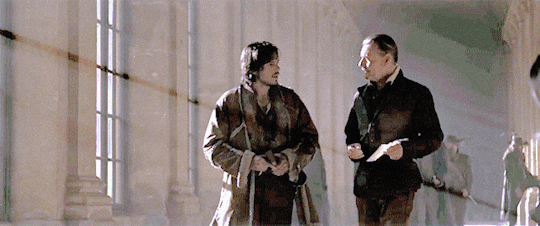



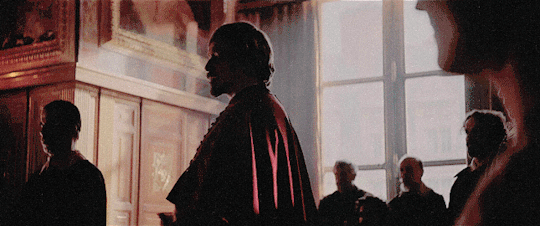
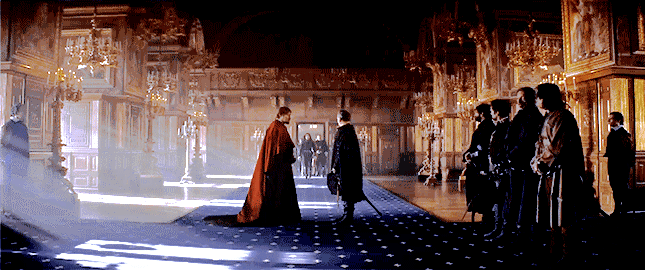
LES TROIS MOUSQUETAIRES: D’Artagnan (2023), directed by Martin Bourboulon
𝒑𝒔𝒅 𝒃𝒚 © issaspace && whogis
#the three musketeers#les trois mousquetaires#cardinal richelieu#captain treville#trevilieu#anne d'autriche#i have no expectations#it would be nice to appreciate the setting#if only it wasn't SO DARK
125 notes
·
View notes
Photo

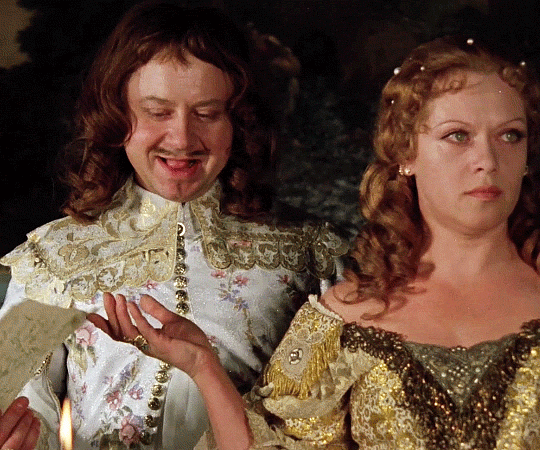
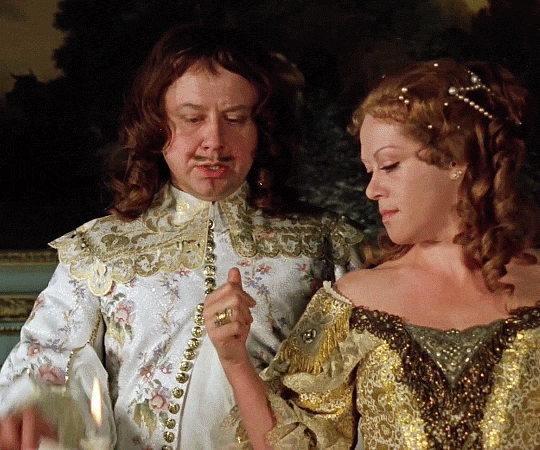


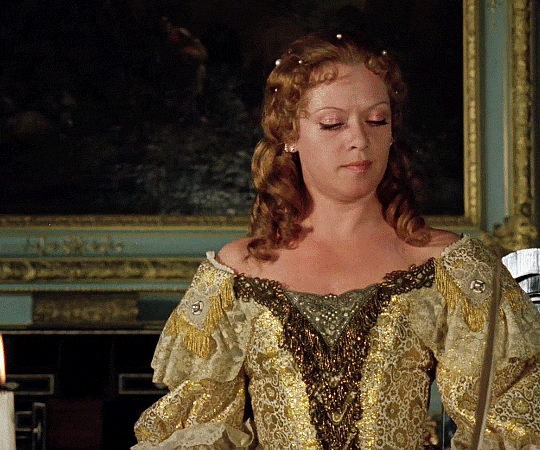
Кардинал так защищал вас, а вы так люто его... ненавидите!
Д'Артаньян и три мушкетёра | D'Artagnan and Three Musketeers (1979), e01
#Д'Артаньян и три мушкетёра#D'Artagnan and Three Musketeers#D'Artagnan and Three Musketeers 1979#The Three Musketeers#Les Trois Mousquetaires#Alexandre Dumas#Soviet cinema#Soviet TV#Louis XIII#Anne of Austria#Anne d'Autriche#Олег Табаков#Oleg Tabakov#Алиса Фрейндлих#Alisa Freindlich#period drama#perioddramaedit#periodedits#gifshistorical#russianperioddrama#Д'Артаньян и три мушкетёра 1979#my gifs#ЛЯ ШЕНЕ
75 notes
·
View notes
Text
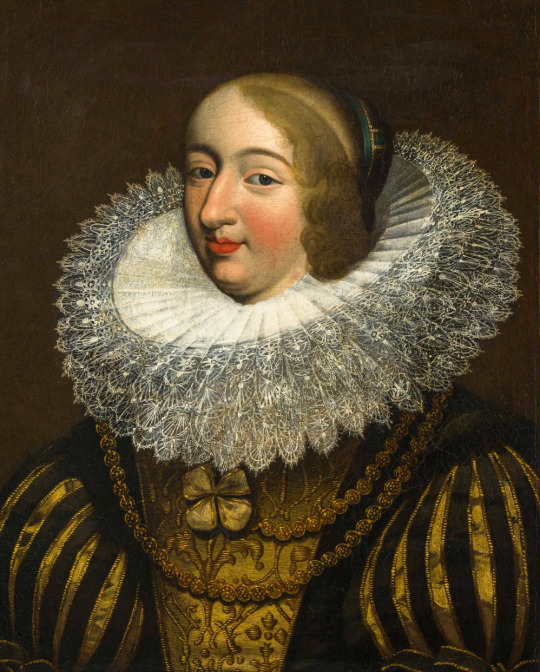
Portrait of Anne of Austria (1601-1666), wife of Louis XIII of France.
It’s probably a depiction of Anne Marie Louise d'Orléans (1627-1693), granddaughter of Henry IV of France. Circle of Charles Beaubrun.
#royaume de france#maison de bourbon#anne d'autriche#reine de france#vive la reine#anne marie louise d'orléans#duchesse de montpensier#la grande mademoiselle#maison d'orléans#bourbon orleans#charles beaubrun
4 notes
·
View notes
Text
Richelieu- Background and social outlook
Armand-Jean du Plessis de Richelieu's family background and personal career made him familiar with all three estates of the realm plus the royal court and government. His father, François, had risen from the lesser nobility of Poitou to become grand provost at the Valois court. The elder Richelieu was in charge of maintaining order and provisions within the king's personal retinue and was ranked just below the great officers of the king's household (which included the masters of the stable, hunt, wardrobe, and king's chamber). François died serving as a captain of the guards for Henry IV when Armand, born in 1585, was not yet five.
Armand's eldest brother, Henri, was well positioned as a courtiersoldier during Louis XIII's minority; a second brother, Alphonse, decided on the monastic life. Armand was groomed by Louis XIII's riding master, Pluvinel, to be a courtier-soldier, but he was also inclined to theological studies. In 1607, Richelieu embarked on an ecclesiastical career when he assumed the family's recently acquired ecclesiastical post at Luçon. Bishop of a poor diocese, almoner to Queen Anne, and finally a cardinal and holder of several benefices, he was as committed a cleric as he was instinctively a gentilhomme.

Through his mother, Suzanne de La Porte, Richelieu had another rich inheritance. Her Poitevin grandfather had been a tax agent for a local prince, her father a celebrated parlementary lawyer who helped frame the great sixteenth-century ordinances of royal laws. The La Portes were as successful members of the robe nobility as the Richelieus were typical nobles of the sword. The Richelieu who served Louis XIII was a unique exemplar of the values of the three estates. As a cleric, he blended Catholic reformationist zeal and reverence for the Papacy with an appreciation of the autonomy of the French monarchy. He had come to court as a friend of such religious devots as Pierre Bérulle, who founded the second of his famous Oratory seminaries at Luçon; however, bon Français leanings lay just beneath the surface. Unlike the devots, but like Louis XIII, Richelieu respected the Huguenots, while wanting to see them convert peacefully. As bishop of Luçon, he had written a polemic against Calvinism, fought off an attempt by local Huguenots to build a temple adjacent to his cathedral, and fretted about the Protestant state within the state, whose greatest seaboard town of La Rochelle lay just down the road.
Richelieu came to the court with some of the style of a Second Estate noble. He married his relatives into great families like the Condés. He pursued personal wealth. He even used public funds for private interests. Yet he saw the nobility's greatness not in independent lawless acts, but in service to the monarch. He earned the title of duke and peer in that service. And he joined his king in condemning noble violence, horrified by an uncle's dueling death, his father's killing of the offender in a second duel, and his brother Henri's demise in a duel over the spoils of the first War of the Mother and Son.
When it came to the ways of the Third Estate, this descendant of jurists was a curious blend of royal reformer and pragmatist. Like his royal master, he was opposed on principle to venal officeholding and judicial obstruction of state laws; yet he knew how crucial parlementary loyalty was to establishing a climate of submissiveness, by subjects both high and low. Louis had a habit of lecturing judges for interfering with affairs of what he called "my state"; Richelieu saw the need to bring the judgmental ruler around to a compromise that advanced the cause of that state.
Differences in their social outlook were less significant than shared attitudes. Had it been otherwise, Richelieu would have quickly suffered the fate of Louis's previous advisors. The self-effacing monarch who was comfortable in the dress of a simple soldier could tolerate ostentatious tastes only in a cardinal who liked to lead his armies. The frugal king who talked benevolently of "my poor people" could understand the duke and peer who thought of the poor as beasts of burden, at their best when working hard.
A. Lloyd Moote - Louis XIII the Just

#xvi#xvii#a.lloyd moote#louis xiii the just#cardinal de richelieu#louis xiii#françois iv du plessis de richelieu#antoine de pluvinel#suzanne de la porte#anne d'autriche
16 notes
·
View notes
Text
Leonhart really went 'I'm gonna betray my country and brother for this woman who's alrrady married, become a soldier in her(& her husband's) army and kill countless ppl, stay friends with that husband, be respectful of the woman's wishes and adopt their son when they both die, still have a crush on said woman after her death that i wont realize one of my closest coworkers has feelings for me'
What a chad,
What a simp.
#evillious chronicles#evillious#ec#leonhart avadonia#mariam phutapie#anne d'autriche#arth lucifen d'autriche#seriously#leonhart is THE simp in ec#and i stand by that#(i dont count venomania as a simp bc hes a r*pist)
27 notes
·
View notes
Photo

Représentation théâtrale au Palais Royal avec Louis XIII, Anne d'Autriche et Richelieu. par Jean de Saint-Igny. Musée des arts décoratifs, ca. 1641.
wikimedia commons
18 notes
·
View notes
Text
read this book (in a fruitless attempt) to better understand the details of the thirty years’ war and the author gets her digs at these people at every chance she gets:
“In the Louvre the King [Louis XIII] lay on his huge bed day after day, but his unhealthy body, which had for the last years never seemed truly alive, was unable to die. The pulse beat obstinately on in the wasted skeleton. Day after day he lay almost motionless, sometimes sinking into troubled sleep, sometimes half-conscious, sometimes speaking, while his wife cried noisily at his bedside.”
“Richelieu, though never popular, had evoked a certain apprehensive admiration. The people did not feel the same about Cardinal Mazarin. The dapper little Sicilian with his petty personal vanities, his childlike ostentation, his delight in craft and cunning, had few impressive qualities. Equally he had not the comprehensive genius of Richelieu; he never understood or managed to control the internal politics of France.”
“Philip IV, having lost both his wife and only son within a few weeks of each other, began, with indecent haste, to seek out a young bride; he was not a very prepossessing husband, old and glum for his forty-odd years, dumbly stupid; as a ruler, a useless idol. He was devoted only to his one remaining child, the scatter-brained little Infanta who was despite the formalities of Madrid and the splendours of Versailles remained through life a foolish, impulsive, perpetually sweet-tempered schoolgirl.”
#'his wife cried noisily at his bedside'#history#french history#spanish history#quotes#i do think it's a well-written and extremely comprehensive book#however#there are too many ppl to keep track of#and many of them either have the same name. similar names. or multiple names/titles#the book is The Thirty Years' War by C.V. Wedgwood#it's from like 1939#which adds an interesting flavor to her perspectives on war i think#shannon says#louis le juste#anne d'autriche#philip iv#cardinal richelieu#cardinal mazarin#c.v. wedgwood
11 notes
·
View notes
Text
THOUGHTS ON S1 EPISODES 9 AND 10, or: the season finale
Episode 9:
Do NOT trust Louis with alcohol. Dude how could you mess up that badly like I understand you were wasted but you can't just SAY that kind of things
Do NOT trust Richelieu with taking care of his wasted son especially when he's in his peak villainy era since his near-death experience from episode 7
"Do you want me to kill the Queen for you ? Because I'd totally kill the Queen for you"
Aramis and Anne fucked THE NIGHT HIS EX GOT FRIDGED
Richelieu I love you but that's going way too far. Not only for this whole plot but also for the way you're treating Milady
That head nun slayed
Starting to really see the appeal of Anne now that she has more time to develop
Just. This whole thing was batshit crazy
Glad to see Louis was happy to have his wife back but MY GOD LOUIS YOU STARTED THIS ALL
The royal couple obvs got a lot of trauma to work through
Episode 9:
Shit hits the fan in like the worst way possible for everyone involved
Milady my poor little meow meow
Richelieu you're still going too far my dude calm the fuck down, get anger management classes or something
You thought you could turn the polycule against each other ? WRONG
D'artagnan is more in love with Athos than he will ever be with you Milady i'm so sorry
I was so scared for Milady, especially since it's only after she loses Richelieu's protection that they murder her in the book
Constance you did your best =( slayed the best you could under the circumstances
That's rough Mr. Bonacieux
Anne legit slayed
Richelieu I hope this was your wake-up call to calm tf down
So uh. Aramis, Anne, anything to confess ?????? (In the books it's heavily implied Mazarin is Louis XIV's father)
Now that Richelieu's understood for the both of them he can fall back on his feet. Not good
I'm thinking, Anne's diamond necklace, which is probably a stand-in for the ferrets, hasn't been used yet. And although Richelieu gave Milady up (while she still worked for him then in the book), now that she's fleeing, if she goes to England that might be a good way to introduce Buckingham and Co
Love to see the gang not murdering a lone woman completely arbitrarily. TAKE THAT BOOK!GANG
All in all: great season with an amazing chaotic energy. STILL WISH THE LACKEYS WERE HERE
#the musketeers#dgix watches the musketeers#aramis#athos#d'artagnan#porthos#milady de winter#anne d'autriche#cardinal de richelieu#louis xiii#louis xiv#constance bonacieux#monsieur bonacieux
5 notes
·
View notes
Text


I once wrote a (cheesy) fanfic to which Bourbon France said he would like to see a portrait of Bourbon Spain holding a portrait miniature of him.
Because this kind of act show people that they are married and they are a powerful couple. It also looks magnificent to hang it on their walls.
So… I commissioned this painting to make his (and mine) dream come true.
Commissioned from Tree by me (please do not re-upload without my permission).
#aph#hetalia#portrait miniature#aph france#aph spain#frain#I took the pose from ''Anne d'Autriche endeuillée présentant le portrait en miniature de Louis XIII'' by Henri and Charles Beaubrun#Clothes of Spain are from ''Ritratto di Carlo di Borbone'' by Anton Raphael Mengs#and his husband clothes are from ''El Delfín Luis de Borbón'' by Hubert Drouais#in this painting I intentionally did not correct the hairstyle of Spain because I think he would love to show his real hair color more#France is definitely the more fashionable of all because... he is France#both of them are in their early 20s#the legend said that after their divorce sadly no one known where the portrait miniature and this painting#many rumors said it had been stolen or burned in some war or revolution#obsessed with this era is never enough for me
89 notes
·
View notes
Text
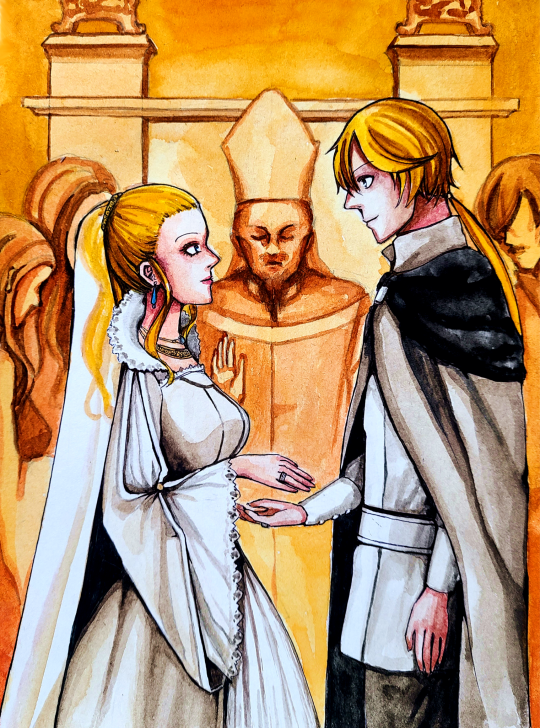
Request from twitter
57 notes
·
View notes
Text
Ok re my post about Prim and Anne having to fuck nasty i actually DO think they banged before Anne married Arth and Prim the king of Marlon but also i think that they were super no homo about it like "oh it's totally normal to sleep naked with your best friend it's just courtly friendship" and Prim used to tell IR this like "ah those sweet days where i was allowed to kiss anne on the lips now that i am older i can't have this kind of friendship with another woman" while IR looks at her slightly concerned
#i. also think Prim and Irina fucked sorry not sorry#evillious chronicles#prim marlon#anne lucifen d'autriche
41 notes
·
View notes
Photo
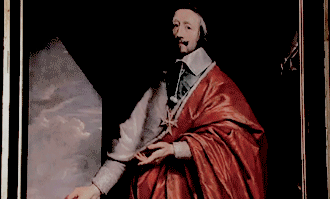
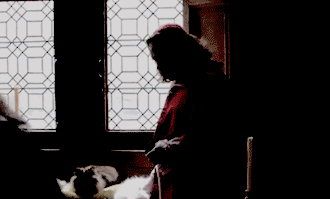


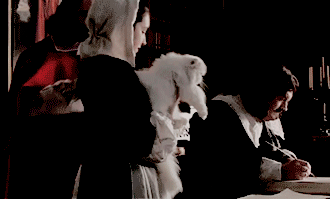



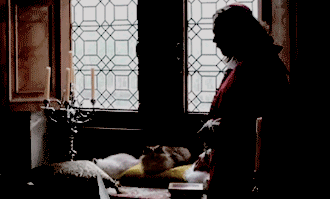
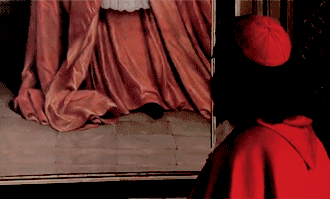
Giulio Raimondo Mazzarino + his cats
#jules mazarin#les trois mousquetaires#the three musketeers#vingt ans après#la reine et le cardinal#giulio mazzarino#cardinal richelieu#cats#anne d'autriche#richelieu would have been proud#anne of austria
43 notes
·
View notes
Photo
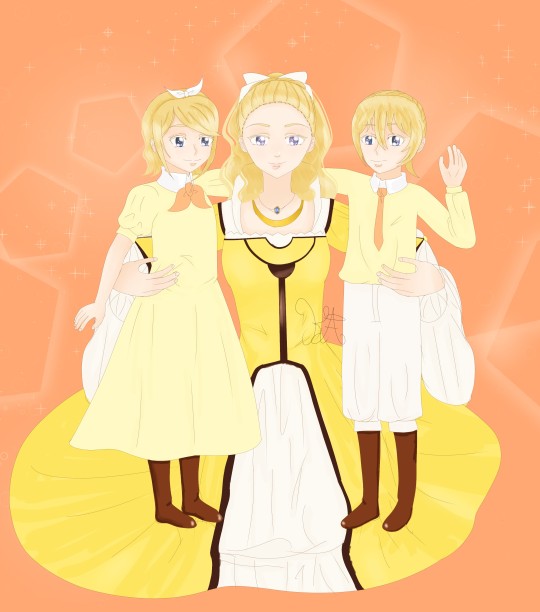
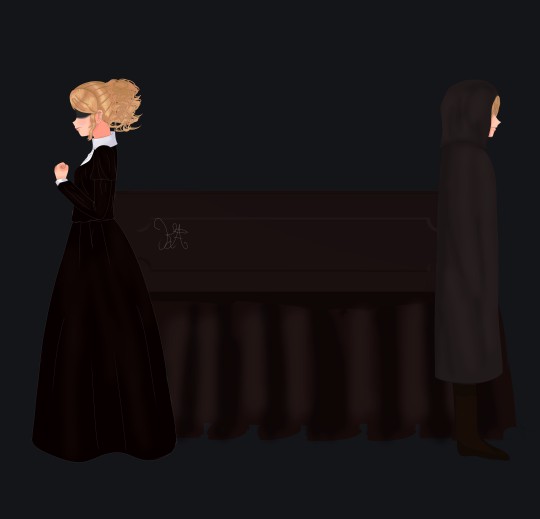

some EC drawings for mothers day
#evillious chronicles#anne lucifen d'autriche#riliane lucifen d'autriche#alexiel lucifen d'autriche#allen avadonia#daughter of evil#vocaloid#kagamine rin#kagamine len
56 notes
·
View notes
Text
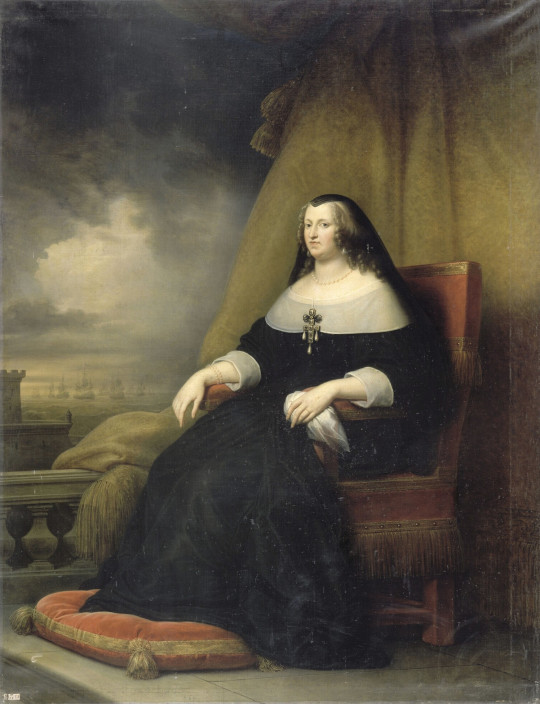
Anna of Austria. By Charles de Steuben.
#charles de steuben#royaume de france#anne d'autriche#reine de france#vive la reine#infante d'espagne#maison de habsbourg#régente de france#maison de bourbon#anne of austria
3 notes
·
View notes
Text
Passive resistance
Condé feared that the king would become the tool of a nonentity or coquette, but it did not enter his head that the monarch could use the crutch of a friendship to realize his own political goals. Marie was even less astute, reportedly devising the strategty of surrounding him with persons of "mediocre capacity and little spirit." Among these was the man who would help Louis overthrow his mother and her favorite.
His name was Charles d'Albert, sieur de Luynes. Stories circulated that Luynes and his two younger brothers shared the same best suit, and that a hare could quickly jump across their family lands. Yet they were of the same lesser nobility that had predominated at the Estates General. Henri IV's friendship for Luynes' father, a soldier of fortune, caused him to place the younger Luynes among the dauphin Louis's noble comrades. The gentilhomme began to look after the heir's birds of prey; and the young boy's fondness for the gentle, handsome, and supportive middle-aged man grew.
By the end of 1614 Louis's attachment was so strong that it bothered Queen Mother Marie, her Italian favorite Concini, and the king's former governor, Souvré. Yet Luynes remained in Louis's favor and his brothers also gained easy access to the king. How did the king prevent a sequel to his mother's earlier banishment of Alexandre de Vendôme? We need follow only one example. In October 1614, Souvré made the Albert brothers stay away from the royal bedchamber, even during the ceremonial lever and coucher, hoping to supplant the gentleman-favorite with his own son, Courtenvaux. Someone told the king that his former governor was responsible, and Louis countered by treating Souvré with silence and dark looks, until the mortified man got the queen mother to negotiate an accommodation.
In employing passive resistance here, Louis had discovered the only way he could assert himself, considering the queen mother's imperiousness and his own timidity. The son also held his ground in refusing to tell his mother who had told him of Souvré's maneuver against Luynes, until she promised not to punish that individual. Equally revealing was the fact that Louis did not bear a grudge against Souvré or Courtenvaux, both of whom he actually liked. He paid for all this agitation with a soaring pulse and symptoms of illness. This powerful combination of indirect strategy, fierce loyalty, forgiveness, and sacrifice of personal health, then, separates the real adolescent Louis XIII from both the weakling and the vindictive Louis of historical fiction and scholarship.
If the court was baffled by the dynamics of Louis's friendships, it was equally unaware that his interests always had a serious element, even when they appeared frivolous. When he sketched with pen and ink, it was of horses pulling cannon, although incongruously placed in a child's setting of trees, churches, and village brides. Louis dutifully took part in court masques and ballets; however, his dislike of elaborate protocol and showing off caused him to refuse outright to lead his sister Elisabeth in a dance before the Spanish ambassador. The Spaniards were disconcerted by this affront so close to the marriages of Louis and Elisabeth to the children of King Philip III of Spain, Anne of Austria and the future Philip IV. The French court poet, Malherbe, could only comment: "If age and love don't change his ways, he will be inquisitive only of things that are solide."
A. Lloyd Moote - Louis XIII the Just
#xvii#a.lloyd moote#louis xiii the just#louis xiii#marie de médicis#charles d'albert de luynes#henri ii de bourbon-condé#concino concini#gilles de souvré#alexandre de vendôme#élisabeth de france#anne d'autriche#philippe iv d'espagne#malherbe
4 notes
·
View notes